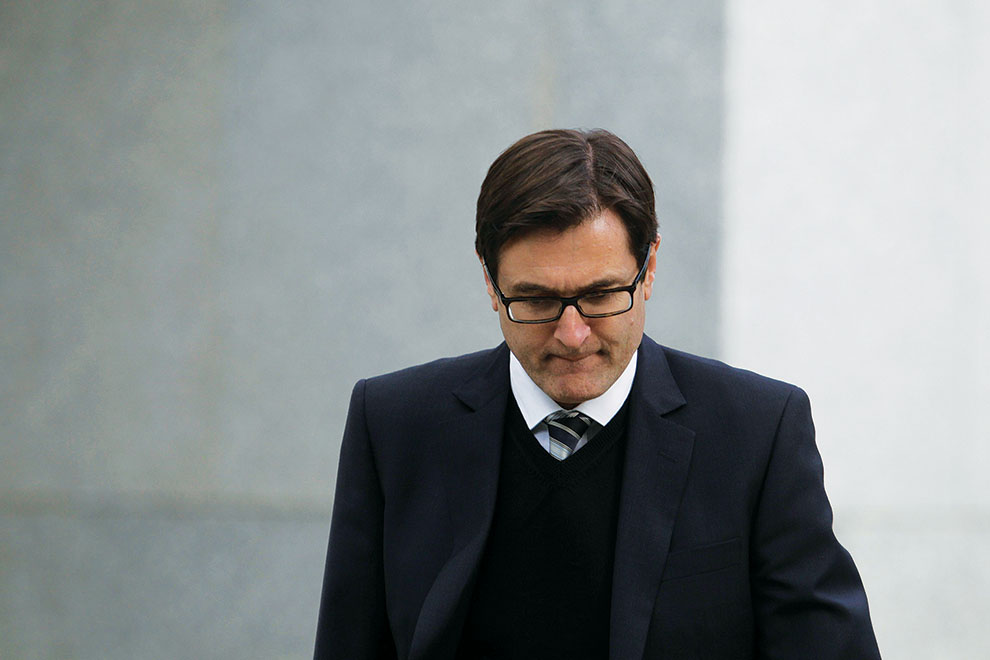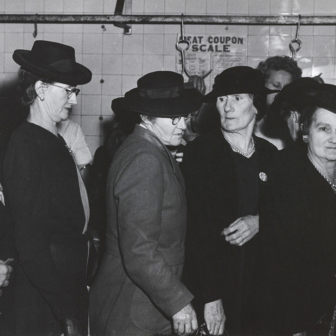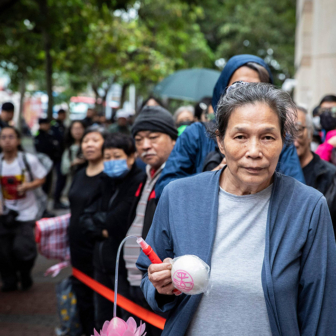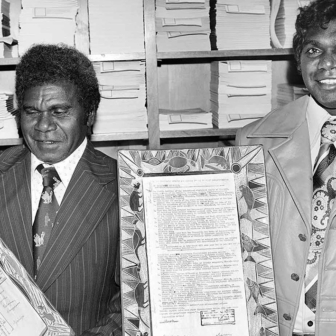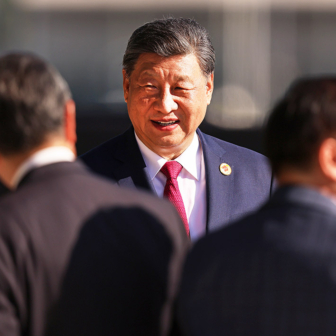Hockey: Not Your Average Joe
By Madonna King | University of Queensland Press | $32.95
The Fights of My Life
By Greg Combet (with Mark Davis) | Melbourne University Press | $32.99
He Who Must Be Obeid: The Untold Story
By Kate McClymont and Linton Besser | Random House | $34.99
Australian political biography can be divided into three categories: The Job Application, The Post-Career Apologia, and The Proper History.
The Job Applications are about those MPs voted most likely to be PM. These are men and women who are already a bit famous and powerful, and wish to be even more famous and powerful. Their books are either produced by the politicians themselves or penned by a sympathetic journalist. They’re cheap, cheerful, and dashed off to a tight deadline. They supply what all ambitious politicians need: their own personally vetted version of the “log cabin to the White House” narrative. If politics is show business for ugly people, then these books are the political equivalent of the celebrity biography.
The Post-Career Apologias are by ex-politicians who are still famous enough to draw a crowd, but won’t be for much longer. As Robert Menzies once said, “There is nothing more ex than an ex.” In the main, these are better-produced books – better written, properly footnoted, fully indexed. They’re the politicians’ attempt to get in with their own version of events before the historians gather to pick over the carcass of their careers.
The Proper Histories are big, fat books about once-powerful famous politicians – mainly dead. Books like A.W. Martin’s two-volume life of Menzies, or David Day’s biographies of Curtin and Chifley. They aspire to achieve the impossible: to become the last word on a life lived in politics. They’re written for posterity, not publicity.
Of these three new biographies, one is clearly a Job Application; one falls into the category of Post-Career Apologia; and one is possibly the best work of Proper History we will ever get about corruption in Australian politics.
Joe Hockey has wanted to be prime minister for a long time. According to his biographer, Madonna King, he first expressed a desire to be PM at the tender age of eight. The arrival of this mid-career biography so early in the first term of the Abbott government tells us all we need to know about the current state of this ambition.
Hockey has a fascinating family history. His father, Richard Hockey, was born in Palestine to an Armenian father and a Palestinian mother. On the day baby Richard arrived, his father walked out on the family and was never heard of again. In 1948 Richard, by now twenty-one, his mother Rose, and his brother Jack migrated to Australia, after a family friend wrote to Sydney’s Cardinal Gilroy successfully seeking his intervention on their behalf. Richard Hockey thrived in his adopted country. He married a Bondi Beach beauty called Beverley, and did well in small business. By the time his son was in his twenties – a careful reading of the book reveals – they owned a family home in Chatswood, a holiday house in the Blue Mountains and an investment flat on the Gold Coast.
But unfortunately for King – and contrary to the book’s title – Hockey himself comes across as very much an average Joe. He had a thoroughly conventional middle-class upbringing on Sydney’s thoroughly conventional middle-class North Shore. He did well at debating and public speaking, played rugby and cricket, attended St Aloysius’ College in picturesque Kirribilli, and did arts and law at Sydney University. There, he started his life in politics by getting elected president of the student representative council as an independent.
He was soon courted by the Liberal Party and eventually gained preselection for the safe seat of North Sydney at the age of twenty-nine. And then he rose and rose like a charmed balloon to the lofty heights of federal treasurer.
If you subtract his family story, Hockey is just like thousands of other ambitious privately educated North Shore boys on the make. It’s a not-very-dramatic tale of minor setbacks, greased rails and soft landings. Yet the overwhelming portrait of Hockey that emerges in this book accords neatly with his long-term political ambitions.
There’s “Friendly Joe,” who always remains on good terms with people, even the ones he shouts at. There’s “Can Do Joe,” who takes on the bureaucracy when he becomes a minister. There’s “Kokoda Joe,” who walked the track with a camera crew in tow. There’s “Family Joe,” happily married with three kids living in upmarket Hunters Hill. There’s “TV Joe,” who once appeared on national television making a fool of himself by wearing a tutu.
And occasionally there’s also “Sloppy Joe” – the Joe who couldn’t be arsed making his own phone calls for support during the 2009 leadership challenge that saw Tony Abbott installed as leader instead. But, King assures us, “Disciplined Joe” has learnt from this debacle.
There’s even “Honest Joe,” the overweight Joe who admits to having his stomach stapled in order to lose weight because he lacks the discipline to do it through exercise and diet. As King explains towards the end of the book, as the 2013 election approaches:
The operation was a big step in the remaking of Joe. He’d focused on gaining a bigger intellectual ownership of his portfolio. Tick. He’d stopped stunts like dressing in pink tutus. Tick. He’d articulated the foundations of his beliefs. Tick. The operation was the obvious next step.
And he’d tried to remake his image by cooperating with this pro-Joe biography. Tick. All in pursuit of becoming the most elusive Joe of all: “PM Joe.” But as the treasurer responsible for one of the least-appreciated federal budgets in Australian history he might yet become a very different Joe: “Sorry Joe.”
King starts her book with the story of Hockey’s now-famous stomach operation. Greg Combet begins his memoir, The Fights of My Life (co-written with the journalist Mark Davis), with a description of his last visit to the cabinet room in Parliament House.
Combet goes there alone on the eve of the leadership ballot in 2013 that would see the end of Julia Gillard’s prime ministership and the return of Kevin Rudd. He pushes open its heavy soundproof door for one last look around at the room that hosts the beating heart of Australia’s political system. He looks up at its ceiling, which features a timber mosaic depicting the Australian bush. “Gazing up during some idle moments in a meeting,” Combet writes, “I liked to spot the cicadas among the eucalypt leaves.” One of Combet’s great political skills was his eye for detail. He never came close to being nicknamed “Sloppy Greg.”
While Joe Hockey was taking elocution lessons on the North Shore, Combet – a shy, solitary kid – was avoiding getting beaten up at Rooty Hill High in Sydney’s west and learning to love the St George Dragons. His father – who worked for Penfolds as a winemaker at their Minchinbury Estate – died when Combet was just fourteen. Of his father, Combet writes, “He faced his mortality bravely and with dignity, as he did with most things in life.”
A smart kid, Combet was the first member of his family to make it to university. He got a degree in mining engineering from the University of New South Wales, worked at coalmines, dropped out and moved to Cairns, came home to Sydney and drifted into the small world of 1980s labour movement activism. He got a job with the Workers Health Centre, studied political economy part-time at Sydney University under Ted Wheelwright, and then went to work for the legendary Tas Bull, federal secretary of the Waterside Workers’ Federation, and drifted no more. Combet had found a mentor, a “second father.”
As a union official – first with the Waterside Workers and later with the ACTU – Combet had found his true calling. He became embroiled in some of the biggest public policy stoushes in recent Australian history. He played a key role in the waterfront dispute in the late 1990s. He fought for the redundancy packages of airline workers caught up in the collapse of Ansett in 2001. He was part of the campaign that took on James Hardie over the deadly impact of asbestos on its unsuspecting workforce. He spearheaded the labour movement’s campaign against John Howard’s WorkChoices. Just listing them is exhausting. By taking the reader inside the union stockade during these battles Combet paints a valuable picture of what “real politics” looks like: early starts, plane flights, missed school presentation nights, the pressure to deliver – all in the bright glare of the media’s incessant interest.
It’s an impressive record, but even this career of championship bouts could not have prepared Combet for the dysfunctional Rudd–Gillard years, when the Labor Party mounted a bare-knuckled assault on its own reputation.
As an MP Combet always tried to play a straight bat, taking on the jobs he was offered with a sense of duty. To his way of thinking, being a minister in a Labor government was an honour. Under Rudd he loyally accepted the job of dealing with the aftermath of the home insulation scheme – much maligned after four young men died working as installers. As climate change minister he developed the Gillard government’s clean energy reforms to tackle global warming.
By election night 2013 Combet admits to feeling a mixture of “anger and despair.” Near the very end of her time as prime minister Gillard had quixotically offered to step aside for him, as a way of blocking Rudd. It was never going to work – and in her heart of hearts I’m sure Gillard knew it. Combet freely admits he was exhausted after thirty years of activism in the labour movement, his health was not good, and he had decided he wanted his life after politics to start as soon as possible.
Hockey and Combet don’t have much in common, but they would agree on one important thing: politics must be pursued as a public service. There’s the ego gratification and the sheer buzz, of course, but to work so hard, to sacrifice so much time with family, to suffer the frequent lows, you need to have a reason to get out of bed every morning that is greater than your own personal fulfilment.
The Labor powerbroker and star witness at several hearings of the Independent Commission Against Corruption, Eddie Moses Obeid OAM, has always had very different reasons for getting out of bed.
The reason he became involved in politics in the first place is highly instructive. Back in the late 1970s his publishing and printing business was annoying the neighbours by running its presses out of hours. As a consequence, he was having a lot of trouble with the local, Labor-dominated council. Obeid soon realised that if he made connections with powerful Labor identities his problem with the sleep-deprived neighbours could be quickly sorted out. It was this incident that put Obeid into the orbit of Labor Mr Fixit Graham Richardson and he never looked back. He became an outstanding fundraiser and an adept branch-stacker, with strong links via his Arabic-language newspaper El-Telegraph into a politically important ethnic community. Eventually he was given a sinecure in the NSW upper house, and even became a minister in the Carr Labor government.
After forty years Obeid had parlayed his growing political power into a money-making tool. He’d moved from a simple house in the western suburbs to Passy, a sandstone mansion in Hunters Hill (not far from Joe Hockey’s place). And, as revealed by the Independent Commission Against Corruption, he and his family used their access to privileged government information to orchestrate the biggest score of their lives by buying up farm land they knew would soon acquire a lucrative coalmining lease. They stood to make millions.
For nearly 400 informative pages He Who Must Be Obeid tells a story of unrelenting venality. No pot of money is too small to pursue, no possible deal too dodgy to ignore. It’s a story about politics in which policy, ideas, the people simply don’t feature. Read it, and weep. •
